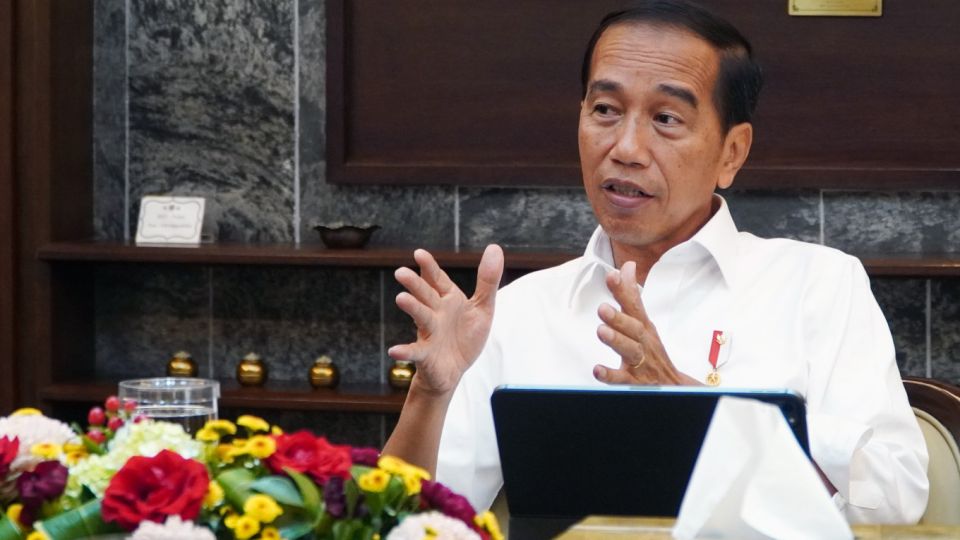November 10, 2022
JAKARTA – President Joko “Jokowi” Widodo said that the government would continue to fight in international forums to keep nickel and other mineral resources at home, saying that it must go “a little bit crazy” to protect the country’s interests.
Jokowi said that it was critical to building a “big ecosystem” of nickel downstreaming instead of only exporting raw materials, as the country holds the largest nickel reserve in the world.
“I’d rather have a brawl [with other countries]. Go ahead and sue [Indonesia] in the WTO [World Trade Organization]. Even if we lose, that’s all right. But we will finally have the [downstream] industry developed,” he told The Jakarta Post in an exclusive interview on Nov. 2.
Data from the United States Geological Survey show that Indonesia and Australia hold the largest nickel reserves in the world with 21 million tonnes each, followed by Brazil and Russia with 16 million and 7.5 million tonnes, respectively.
The European Union filed a complaint against Indonesia in 2019 over restrictions imposed by the latter on the export of raw materials like nickel, which is required for stainless steel production. Brussels argued that Indonesia had violated the commitment of WTO members to give as wide access as possible to international trade including raw nickel, as stipulated in Article XI:1 of the 1994 General Agreement on Tariffs and Trade (GATT).
Jokowi said that if Indonesia lost, he would appeal the case even if it took the next five to 10 years. “It wouldn’t be so bad. Our electric vehicle and battery industries will be ready by then.”
For years Indonesia has been exporting raw materials to other countries, he said, which greatly reduced the amount of money that the country could have received if these were processed first domestically.
He said by keeping the processing at home during the legal proceedings in the WTO, Indonesia has increased its nickel overseas sales from only ore exports with a yearly average US$1.1 billion before, to $20.8 billion with processed nickel.
“In the past, when we were sued we always backed down, sued again and we backed down again. Why should we do that? We should fight if we are sued,” President Jokowi said, “We need to be a little bit crazy.”
nvestment Minister Bahlil Lahadalia has proposed to create an international organization like the Organization of the Petroleum Exporting Countries (OPEC) for electric vehicle (EV) battery mineral suppliers as a means to protect downstream industry in the developing world.
In a separate interview with the Post on Nov. 1, he explained that as batteries would be the conventional fuel in the future, then nickel producers of batteries should understand that not all countries had these features.
Indonesia has been keen on developing its nickel downstream industry by attracting multiple investors from overseas, such as China and South Korea, to develop the EV and its battery industry ecosystem in Indonesia.
In the process of developing downstream industrialization, the country faces stiff challenges from other parties in the form of trade and investment competition, such as legal proceedings.
“The fossil oil of the future is the battery,” the investment chief said.
He justified this proposal by saying that several countries that were dependent on nickel imports had made regulations to protect their own industries, including regulations that compelled firms to build battery factories near the EV factories.
Jokowi declined the plan to create an OPEC-style institution, saying that the process to protect the country’s minerals “has not arrived there yet.”
Responding to government’s strong stance on protection of mineral resources, state-owned Bank Mandiri commodity expert Ahmad Zuhdi Dwi Kusuma doubted that an OPEC-style organization for minerals would be seen anytime soon, due to the focus of each country to manage its own macroeconomic conditions.
Nonetheless, the probability for this type of organization to be created was “very high”, because the number of countries that produced nickel was very limited globally.
If such an organization is created, then global nickel price could be controlled by this organization by determining the processed nickel production target, which induces a more stable price.
“Similar to OPEC, its decision would be very influential on prices,” Ahmad told the Post on Friday.
However, Indonesia is not free from foreign leverage, as a large amount of smelter construction is foreign-funded, he said, and thus Indonesia’s power in this organization would remain entangled with investment decisions from other countries.
There could also be challenges from consumer countries, such as the EU, in the form of research acceleration on non-nickel batteries such as lithium ferro-phosphate (LFP) batteries.


